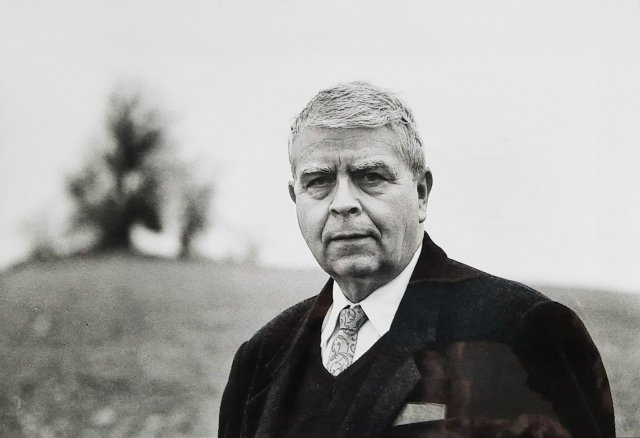Pastor Dieter Frielinghaus
Photo: nd/Burkhard Lange
At the beginning of the 1970s, as a very young pastor, I met Dieter Frielinghaus for the first time. It was during a meeting of reformed pastors from the GDR. Protestant churches that do not follow the tradition of Luther, but rather the tradition of the French reformer Jean Calvin, call themselves Reformed. Dieter Frielinghaus, born in 1928, was and remained a Reformed man his entire life: no fuss about the person (Calvin’s final resting place is unknown), the theologian is not a pastor, but a pastor, who only differs from the others in that he studied theology; no grand gestures, no symbols to capture the eye, not even a cross, let alone a crucifix; The only important object is the Bible, whose texts must be thought about, understood and lived again and again.
In France, the Reformed (Huguenots) were either persecuted or tolerated, quite unlike the rich, state-supporting churches here, east of the Rhine. Dieter Frielinghaus didn’t need to rethink things when he left the Federal Republic of Germany for the GDR in 1957, because the separation of church and state and the rather modest role of the church are entirely in keeping with the Reformed understanding of the church. He also referred to this after 1990, when the former GDR churches established themselves in the new, now larger Germany. Most of his theological colleagues did not take him seriously. One said: I can still see and hear him saying that there is now more than just theology.
Already during the first encounters, I noticed that Dieter Frielinghaus consistently asked the question of peace and justice and did not perceive the expression “peace pastor” as an insult, as it was meant at the time. Peace and justice are basic concepts in the Bible and run through many of his sermons and Bible interpretations, not as general concepts, but in concrete terms and updated. He called the wealth of western countries and the increasing poverty of southern countries a scandal. Some of his sermons can be found in the “Weißenseer Blatten” and in small church publications.
But his basic convictions did not make him an agitator. Dieter Frielinghaus was a pastor. I felt something of this during the meetings of his Bergholz community in the Uckermark. The atmosphere that Gisela Frielinghaus created in the rectory also played a role.
As a pastor from the West, I have had to fulfill many of the wishes of my colleagues from the East over the years. If the wishes were too great for me – too much money or too much material, for example for necessary building renovations or for equipping the kitchen or bathroom in the rectory – they fell under the responsibility of the French military chaplain. He was an officer in the French occupying forces and could cross the border at any time without being checked. How many church institutions, parishes and individuals benefited from him has disappeared into the darkness of the past. I was not “bothered” by the wishes of the two Frielinghauss, even though they and their three children had little comfort in the old village rectory but had a lot of trouble, especially in winter.
In the last years of his life, Dieter Frielinghaus was concerned about the future of his children and grandchildren and worried that “peace pastors” – oh, if only there were more of them! – becomes a swear word again.
Dieter Frielinghaus died on May 16th.
Become a member of the nd.Genossenschaft!

Since January 1, 2022, the »nd« will be published as an independent left-wing newspaper owned by the staff and readers. Be there and support media diversity and visible left-wing positions as a cooperative member. Fill out the membership application now.
More information on www.dasnd.de/genossenschaft
